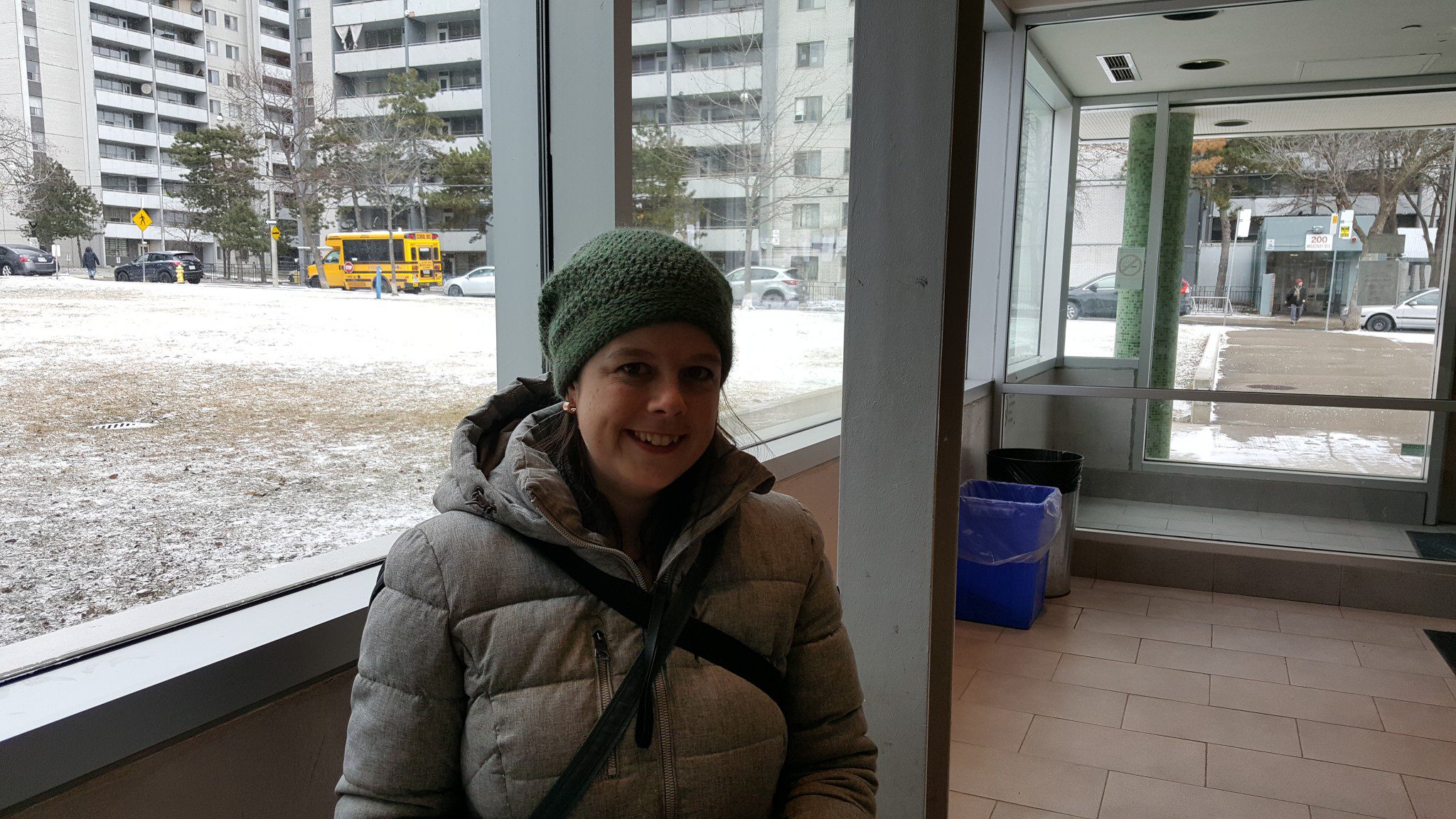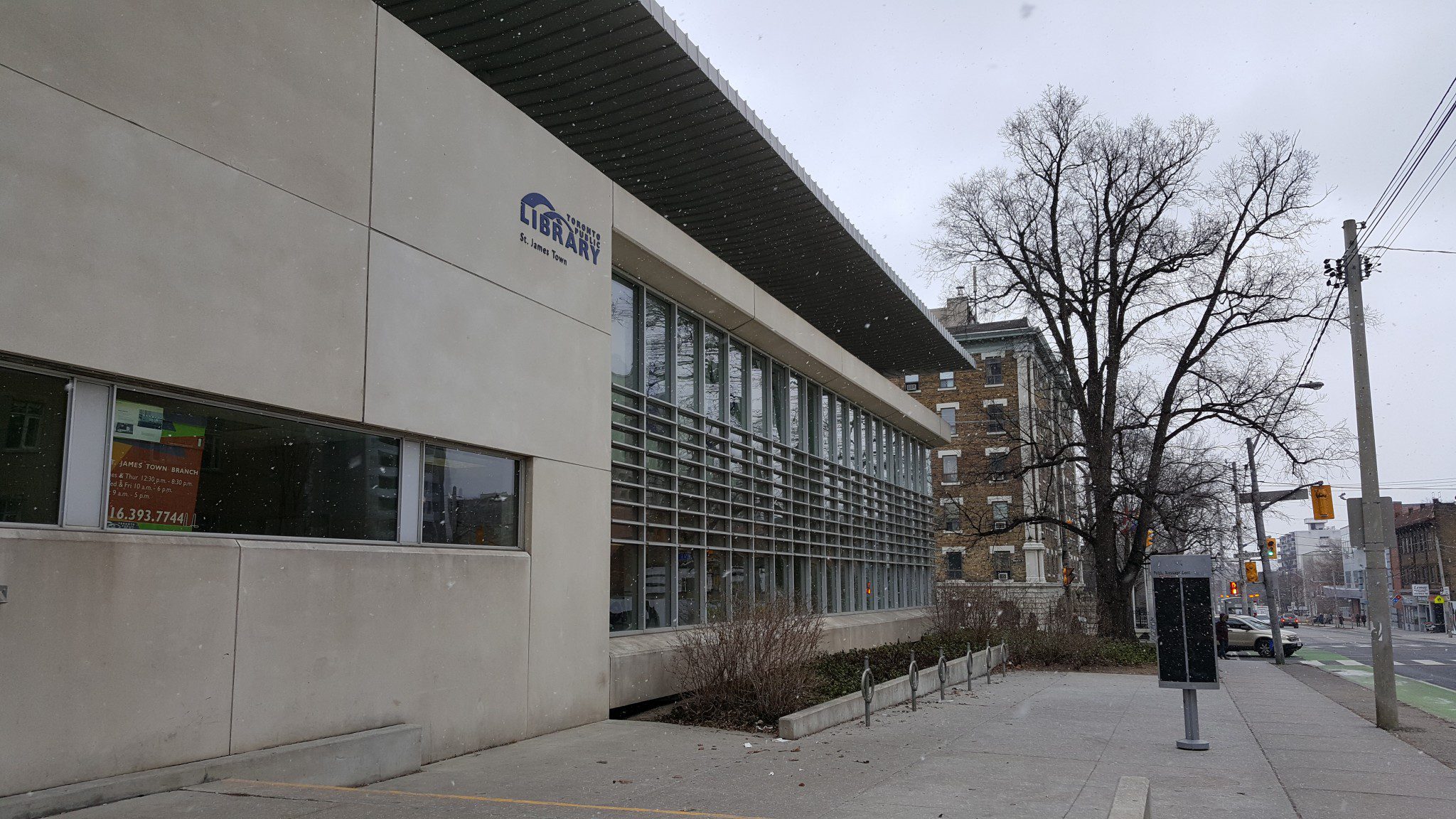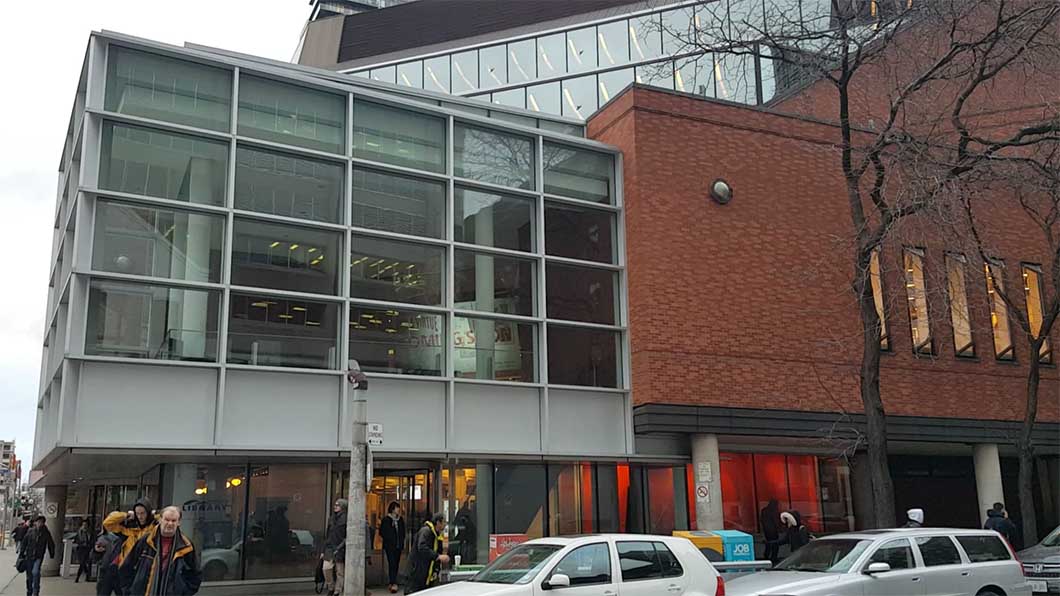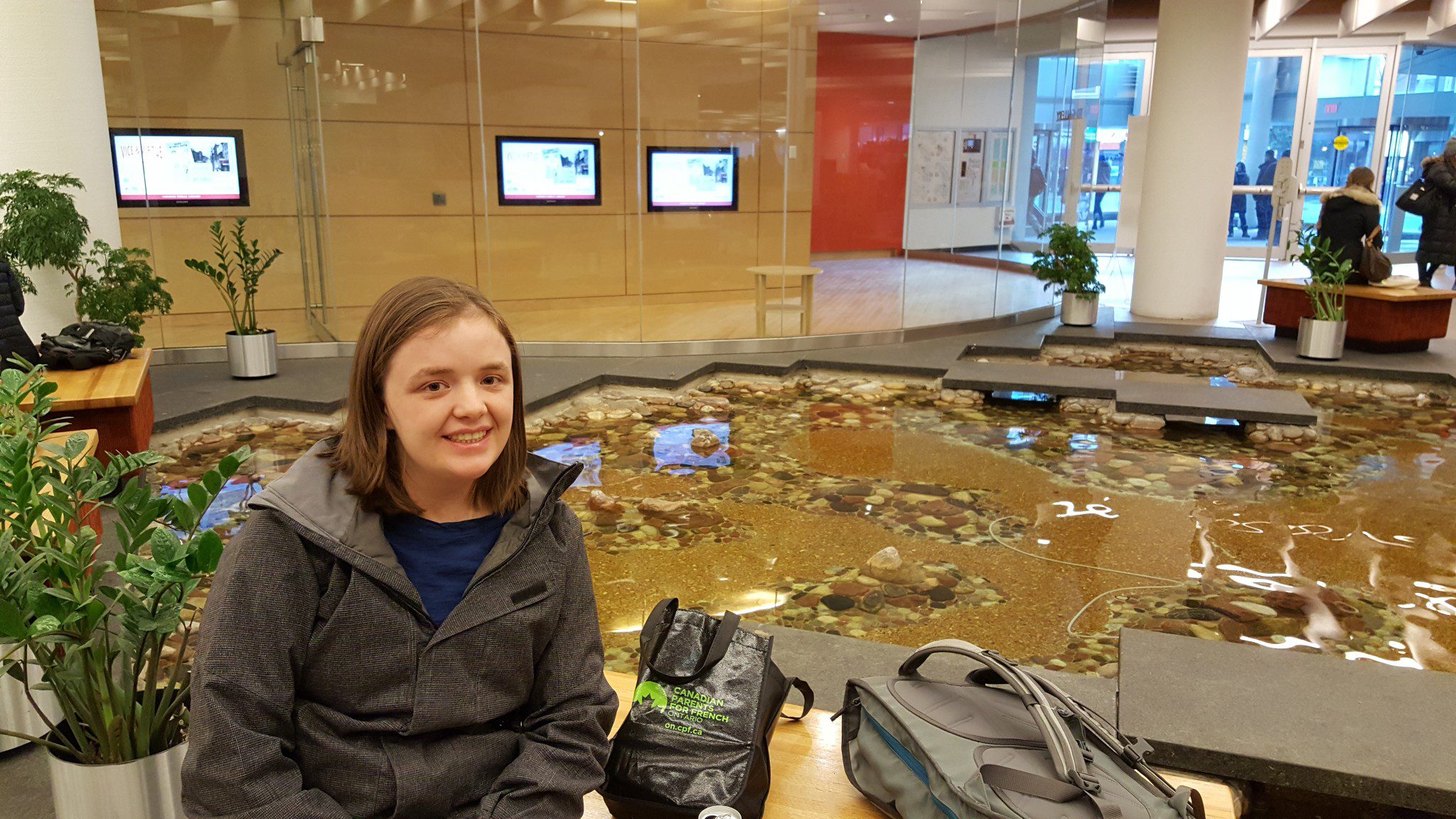Same Cut Debates, Different Year
Don’t be surprised if you get a sense of déjà vu with the mayor and Toronto city council wrapping up the budget for 2017. City council approved the budget on February 16th with a 27-16 vote. On the chopping block for budget reductions were popular public services such as library hours, childcare and the potential closing of a men’s shelter in North York. They’ve all faced similar threatened cuts in previous years.
Carolyn Ferns is frustrated by the the city’s attempts to place childcare services on the budget chopping block every year.
“It’s like Groundhog Day,” said Ferns, coordinator of the advocacy group Ontario Coalition for Better Child Care. She was referring to the 1993 Hollywood movie with Bill Murray, where he wakes up every day back where he started. Ferns is fed up having to go to city hall every year to push for adequate funding of child care.
And like clockwork, a few days after the coalition held an event on Feb. 1 to protest against the possible cuts, Mayor John Tory announced on Feb. 6 the city would continue funding the daycare occupancy grants this year, bringing temporary relief to those who have been fighting against them.
Talking about managing the city’s budget longer term, even Toronto’s Chief Financial Officer, Rob Rossini, isn’t satisfied with the process.
“The future makes me a little nervous,” Rossini said at the city’s February 7th meeting of the Executive Committee.
Some experts think there is a better way to make a city budget. And it starts with people.
Sean Meagher is Social Planning Toronto’s executive director. It’s a charitable organization that looks at public policy and encourages community engagement on social issues, including the city budget.
“I think the other problem is that it doesn’t start where it needs to start,” Meagher says. “We’re paying more for user fees, but we’re getting worse service while refusing the principal revenue source that we got, our property taxes.”
“Instead of saying ‘What kind of city do we want to have, what kinds of services do we want to make sure available for the public?’ we start with how much we want to spend and we work backward,” he says.
Better Ways to Prepare the City Budget
“We don’t want 90,000 families waiting for affordable housing, we want homeless people off the street,” he suggests.
He sees that there would be a better budget if the city asked what it costs to achieve its goals.
Last year a consulting group hired by the city, KPMG, recommended 12 options for raising revenue.
Meagher sees the 12 options as worth looking at.
“KPMG shows that we can generate literally hundreds of millions of dollars by using the tools that are available to us,” he says.
Mayor Tory and the city councillors did not take up any of the 12-new revenue generating options for the 2017 budget.
“The city has said, for example, they don’t want to hike property taxes any faster than the rate of inflation, but also said they will raise user fees for recreation by six times the rate of inflation,” Meagher says. “They raised transit fares by twice the rate of inflation, and this year by three times the rate of inflation.”
Making Property Tax More Fair and Raising More Revenue
Myer Siemiatycki is professor of politics and public administration at Ryerson University. He has watched how common it has been for community groups to urge the mayor and councillors to take proposed budget cuts, cuts meant to address money shortfalls, off the table. Siemiatycki has a solution to the annual last minute budget crunch.
“By far the largest sources of municipal revenue….is the property tax, real estate,” he says. He laments that the tax rate on homeowners is a “flat rate” and that the one-rate-fits-all approach is more of a burden on people with modest housing.
Siemiatycki suggests a progressive property tax with “property tax brackets”, much like income tax brackets, would be more fair and bring in revenue that would provide for a sustainable yearly budget.
“Tweaking the property tax so that it could be rendered less regressive.…..it would raise a huge, huge whack of money,” he suggests.
In other words, people with expensive homes would pay a higher property tax, much like the federal income tax would take a bigger bite from people with higher incomes.
When asked about the impact on seniors and people who have expensive homes but little cash after mortgage expenses, Siemiatycki suggests a deferral program for households in which some of the property taxes would be paid once the property is sold.
He goes on to quote a report by the Canadian Centre for Policy Studies showing a progressive property tax for Vancouver would add $1.7 billion to that city’s revenue. Vancouver has not implemented such a property tax.
Changing Budget to Improve Quality of Life in Toronto
He talks of a well-funded city budget being connected to a good quality of life for people living and working in Toronto, as well as being good for schools.
“I don’t think we’re being well served by politicians whose starting point….is ‘I won’t raise property taxes,’” Siemiatycki says, frowning.
He questions the current approach to the city budget, and is also in favour of the 12 point KPMG report.
“You don’t have much left other than user fees (which have gone from five per cent to a proposed eight per cent of the city budget), cutting programs and services and trying to contract out work at the city,” he says, calling them “bad trade-offs” when Toronto boasts the lowest property taxes in the entire southern Ontario region.
Childcare
The city is at risk of failing its residents when it comes to providing an affordable childcare service, according to Coun. Kristyn Wong-Tam.
“It’s more expensive to send your kids to a daycare than it is to send them to university,” said the Ward 27 councillor, driving home the point that many parents are struggling to find good, affordable, childcare service in Toronto.
“The cost of childcare here is the most expensive in Canada, approximately $24,000 a year per child,” Wong-Tam said.
Adding to the problem are the “18,000 families right now on the waiting list for childcare.”
Wong-Tam, along with other councillors, parents, educators, and women’s groups, were attending the event organized by the Ontario Coalition for Better Child Care outside Committee Room #2 at City Hall on Feb. 1, to voice concerns about the planned cuts to childcare in this year’s Toronto budget.
At the heart of the issue is the city’s decision to eliminate the daycare occupancy grants, which allow daycare centres to rent spaces in schools at a subsidized rate. It’s a move that would have saved the city $1.13 million.
Carolyn Ferns, coordinator of the childcare advocacy group, said the cuts will impact over 4,000 children in about 350 in-school daycare centres, as well as potentially increase childcare fees by $350 per year per child.
“We can’t afford to lose one childcare space in the city and see the fees go up by $1,” Ferns said.
Explaining how “incredibly important” it is for parents to have a quality childcare program, she said it’d help parents “balance work and family life.”
“It’s also good for our economy. There are studies after studies showing the economic benefits of investing in childcare.”
Downsview Dells Shelter
The city’s proposed 2017 budget called for closing a shelter currently housing up to 28 homeless men; the only one in northwest Toronto. Downsview Dells shelter runs a program for homeless men engaged in addressing their substance abuse issues. During the day, the men attend programs off-site to help them fight addiction to alcohol, drugs and/or gambling. The shelter was on the chopping block during the city’s 2012 budget. In the end, that time, city council supported continued funding.
Street nurse Cathy Crowe says there are not enough shelter spaces for people living outside the downtown, and expressed dismay at having even fewer homeless shelter spaces.
The city stepped back from its earlier recommendation to cut the shelter. It was saved, again, this year from closing.
Swimming Pool
The 2017 proposed budget cuts by the City of Toronto could mean the closure of many Toronto pools.
A list of staff-endorsed service cuts that council could implement in order to fill a $91 million shortfall in the proposed budget for 2017 includes the closure of 36 wading pools as well as the discontinuing of service at 10 indoor pools. All told, the cuts could save the city $1.74 million, however it is not clear which pools will be affected. The city’s Executive Committee approved pulling funding from three Toronto District School Board (TDSB) pools located in East York and North York, including the pool in the Duke of Connaught Public School.
The city closed three TDSB pools in 2016, which used to run swimming programs open to the public. Now these pools only used by students during the school hours, after the city stopped funding them.
Toronto Public Library
Linda Fuerth, a social worker in the low-income community of St. James Town, knows first-hand how valuable of a resource the library is to people in the neighbourhood.
As she sat down on the bench in the packed community centre that also houses the library, she said she just helped “a gentleman” get some books there, a regular activity she does to encourage seniors to “get out of the house.”
The proposed budget cut to the library will take some of the joys away from them, she fears.
“It doesn’t make sense,“ she said. “There have already been enough cuts to many resources.”
In the effort to balance its budget this year, the City of Toronto is looking to cut 2.6 per cent of the Toronto Public Library’s funding, which amounts to $4.607 million.
For its part, the library has been implementing some cost-cutting measures. However, there’s still a $1.077 million gap in the budget that, as the submitted budget report says, might result in the operating hours reduction at many branches and reductions in the number of offered programs.
“Reducing library hours or any other of the things that they provide to the seniors, you’ll find there’s going to be more isolation,” Fuerth said.





Reduced operating days and hours will affect more than just seniors. Statistics released by the library show that it has “higher per capita visits and circulation than any other large urban public library in North America“ with over 18 million visits to the Toronto Public Library’s branches in 2015.
Yet, the St. James Town library branch is running at limited hours. It closes on Sunday and Monday, keeping families from taking full advantage of the weekend to visit the place.
According to Zoë Gemelli, a regular patron in the branch, the opposite should be done instead. She notices how the library is always packed when she comes to visit.
“To have a library that’s not functioning, I’d say that the budget cut is a bad idea. They should be investing more, flip it the other way,” Gemelli said.
The library’s proposal for the city to invest more on its Youth Hubs initiative, a free after-school homework help program for young students, was shot down during the budget committee wrap-up meeting on January 24.
But during the final budget meeting at Toronto City Hall on Feb. 15, with the backing of the mayor, council members have voted to fund a $387,000 proposal to add two additional Youth Hubs and expand programming in existing ones.
The meeting didn’t explicitly discuss the gap in the operating budget of the Toronto Public Library for 2017.

